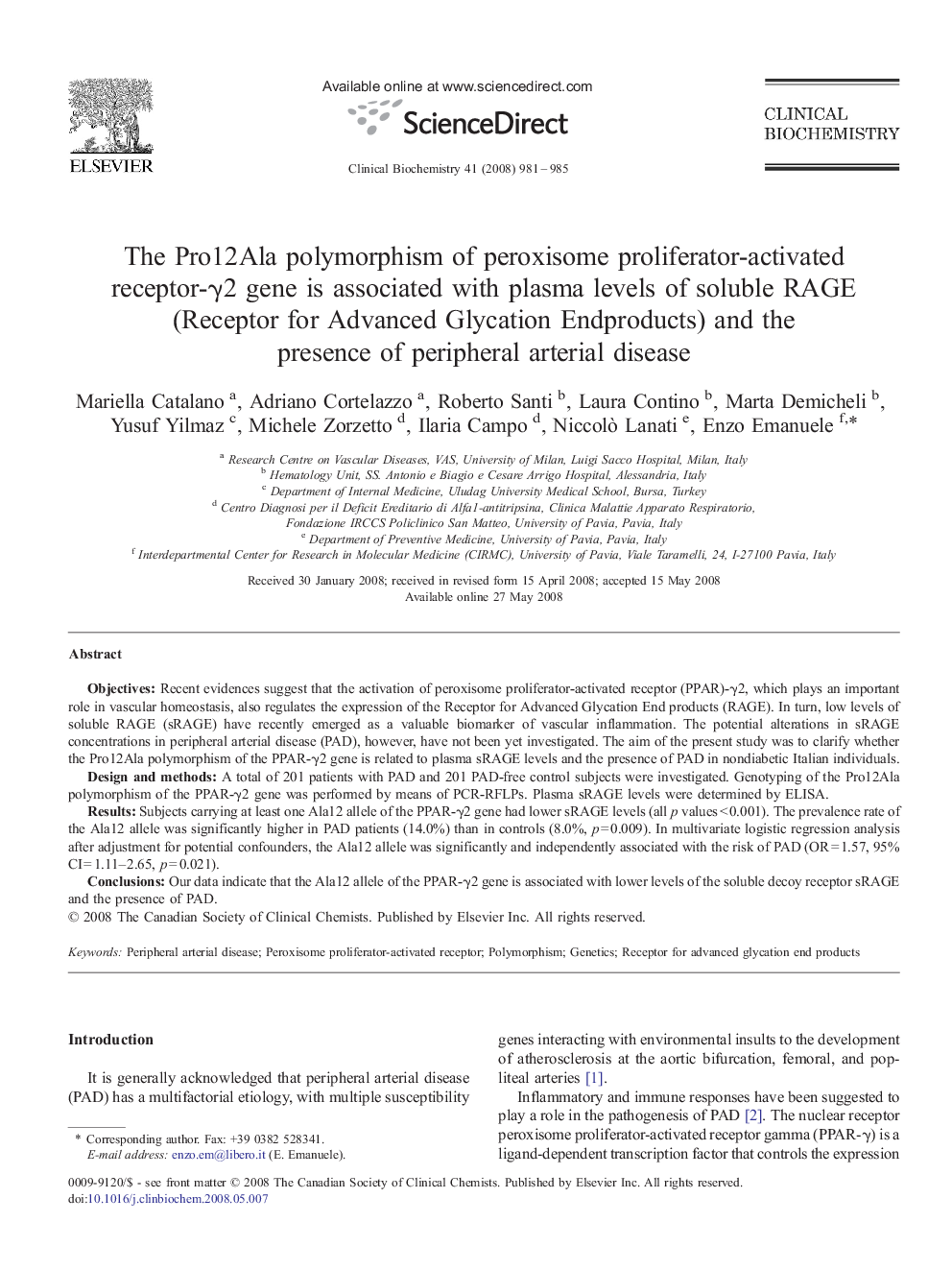| Article ID | Journal | Published Year | Pages | File Type |
|---|---|---|---|---|
| 1970255 | Clinical Biochemistry | 2008 | 5 Pages |
ObjectivesRecent evidences suggest that the activation of peroxisome proliferator-activated receptor (PPAR)-γ2, which plays an important role in vascular homeostasis, also regulates the expression of the Receptor for Advanced Glycation End products (RAGE). In turn, low levels of soluble RAGE (sRAGE) have recently emerged as a valuable biomarker of vascular inflammation. The potential alterations in sRAGE concentrations in peripheral arterial disease (PAD), however, have not been yet investigated. The aim of the present study was to clarify whether the Pro12Ala polymorphism of the PPAR-γ2 gene is related to plasma sRAGE levels and the presence of PAD in nondiabetic Italian individuals.Design and methodsA total of 201 patients with PAD and 201 PAD-free control subjects were investigated. Genotyping of the Pro12Ala polymorphism of the PPAR-γ2 gene was performed by means of PCR-RFLPs. Plasma sRAGE levels were determined by ELISA.ResultsSubjects carrying at least one Ala12 allele of the PPAR-γ2 gene had lower sRAGE levels (all p values < 0.001). The prevalence rate of the Ala12 allele was significantly higher in PAD patients (14.0%) than in controls (8.0%, p = 0.009). In multivariate logistic regression analysis after adjustment for potential confounders, the Ala12 allele was significantly and independently associated with the risk of PAD (OR = 1.57, 95% CI = 1.11–2.65, p = 0.021).ConclusionsOur data indicate that the Ala12 allele of the PPAR-γ2 gene is associated with lower levels of the soluble decoy receptor sRAGE and the presence of PAD.
